Rachel is NOT a Sharon, wore a wig from age four til 18, is a Hanukkah person, slayed her bat mitzvah, believes God is everywhere and in everything, is a yes person, just wants to live as an artist in this world, and feels very loved.
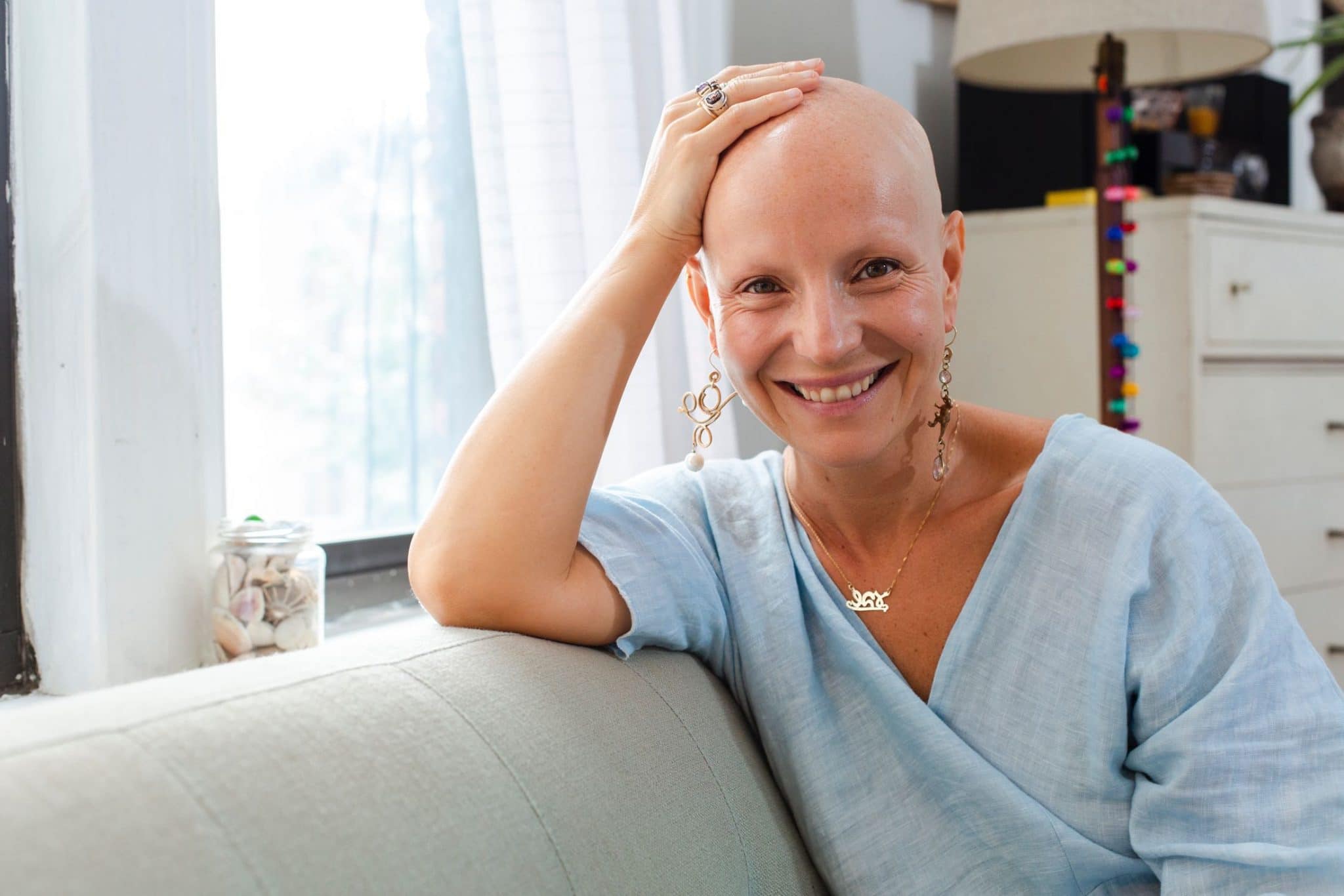
What is the story of your name?
My parents were going to name me Sharon. Jewish girls don’t really have godmothers, but I have these fabulous lesbian godmothers, and they said, “No way can you name her Sharon. We know a terrible Sharon.” So, they saved me from that name.
No offense to all the Sharons out there. I just am not a Sharon.
They wanted to name me after my great-grandmother who was this badass socialist Jew. Her name was Jenny. It was 1981, and my parents thought, “We can’t possibly name our daughter Jennifer. That’s so basic.”
So, they gave me my Hebrew name, which is Sheva. It means “seven,” and it’s very uncommon as a woman’s name. Normally, your name is Batsheva, “daughter of Sheva.” They named me Sheva Devora. Devora is for my mom’s father’s mother, Dora. Then they settled on a matriarch. I already had a cousin Sara, and I already had a cousin Rebecca, so they named me Rachel. There you have it.
Seven is a weirdly big number in my life.
Is it odd or is it God?
That’s the question.
What is your earliest memory?
I have a vague memory of my childhood bedroom on First Avenue and 23rd Street. We only lived there until I was two and a half, but I remember there was a green carpet and light yellow walls. I had a mobile, and there was a huge Marimekko piece of fabric that was stretched into a frame. I like to believe that color story had some sort of impact on my taste.
One of my most seminal memories happened when I was four and a half years old. It was the first or second day of kindergarten, and we had moved to Long Island by then.
I lost all my hair when I was a year and a half to alopecia, which is this autoimmune condition that I’ve had for my whole life where I don’t grow hair. My parents went to a psychologist, and it was decided for me in therapy that I would get a wig and it would be a tool for me to have in school. I remember not fully understanding that or grasping it. Prior to that, I was just this confident bald girl with really good style at the age of four, if I do say so myself.
This little boy came up to me. I was wearing a wig. He asked, “Are you wearing a wig?,” and I said, “No.” I can see it in my mind. It’s so clear. I see that as a traumatic moment in my life, because it drastically shifted the course of how I would respond to the world.
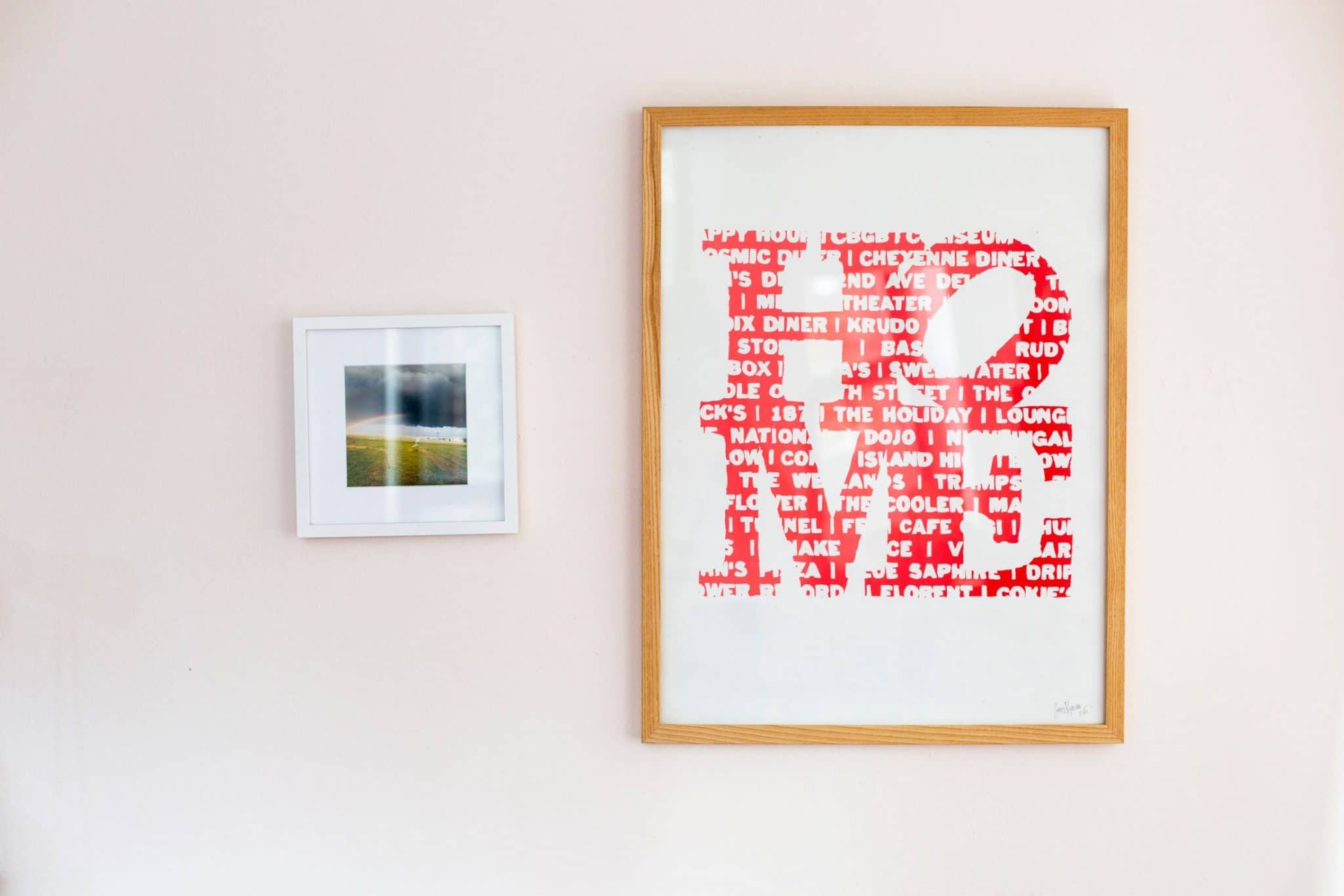
Where and who do you come from?
I come from a strong, purebred Jewish lineage. I have not done ancestry.com, because I know the answer is I’m 99% Ashkenazi Jewish.
I come from a tradition of extremely opinionated, smart, strong-minded women. All the women that I have known in my life are running the show.
I did not experience the patriarchy in my upbringing.
We are not only Ashkenazi Jewish, but we’ve been in New York City for a hundred years. They came after the Tsar and before the war, in 1918ish. Florida has been the next acceptable destination. We’re pretty basic in that way.
What advice would you give to your teenage self?
My teenage self really needed a talking to. I would tell her, “Who you are is okay. It’s great, even. Stop hiding. It’s going to get better. You’re beautiful as you are.”
I wore a wig from age four until 18.
I would have said, “Take the wig off. One day, you will walk into Vogue and have a photoshoot because you’re a bald person.” I remember walking into one World Trade Center where the Vogue offices are and thinking, “Wow, if only my 16-year-old, wigged, chubby Jewish self knew that I would be doing this one day.”
I have physically and spiritually transformed myself over the past 20 years. I can say that with confidence and a lot of humility. It was very hard. It was a lot of work and stepping in to fear.
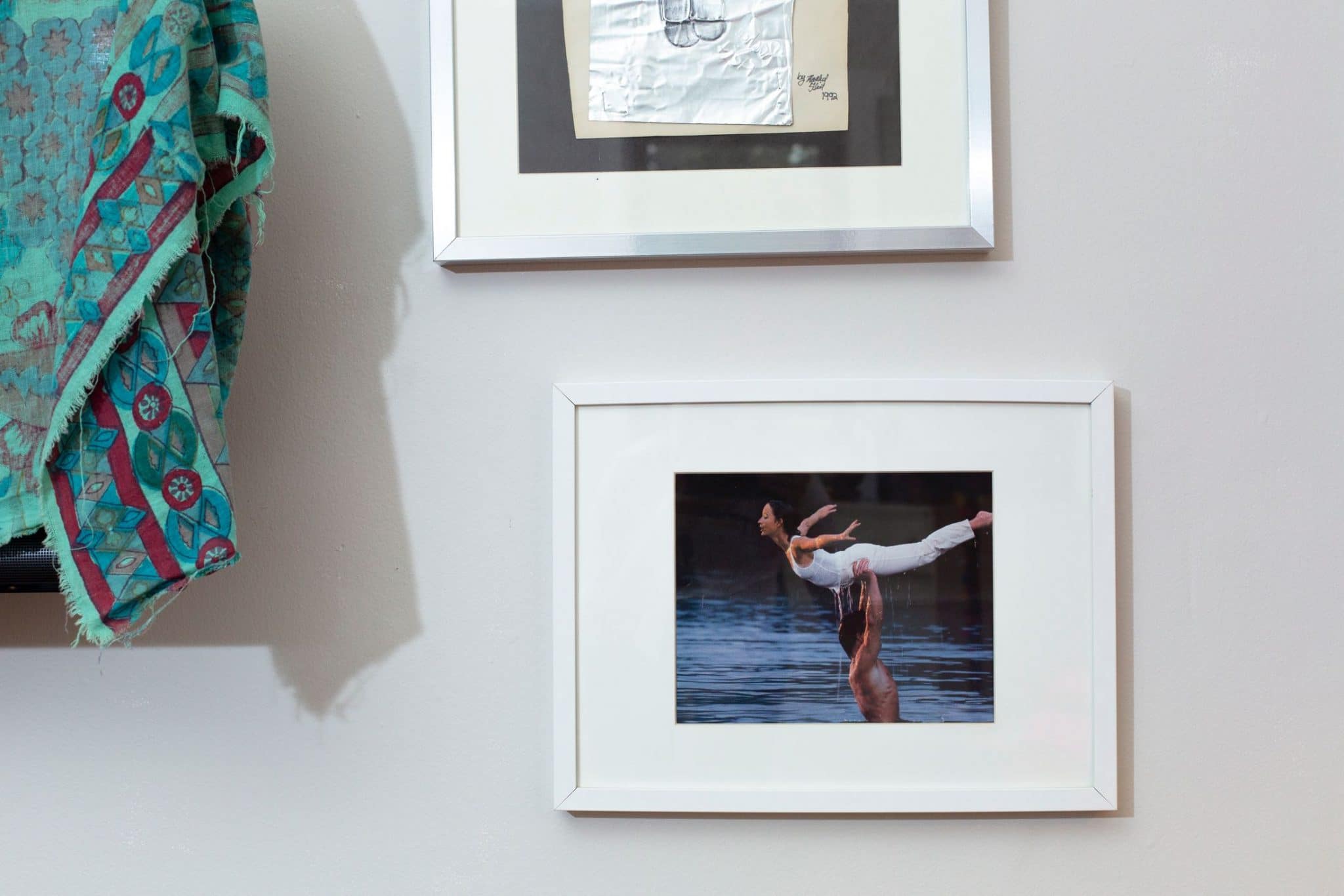
What role did Judaism play in your upbringing?
From a very young age, I identified as a Jewish person. In elementary school, people would ask, “Do you celebrate Christmas or Hanukkah?”
I’m a Hanukkah person.
There were not a lot of Jewish people where we ended up on Long Island. We celebrated the Jewish holidays with the grandparents and the cousins. Hanukkah was huge. It’s everything. There are so many family photos of women and men sitting around boxes of blue and silver wrapping paper. We lit the candles every night, and I got to open up one present every night. When the grandparents came, it was a mountain.
They did Yom Kippur, but, when I was a kid, I didn’t fast. Passover was huge in our family. My cousins and I would put on a musical theater performance between dessert and the afikomen every year. It was major. I still remember a rendition of Into The Woods that my cousin Sarah rewrote: “Into the sea, we have to go / to get away from the pharaoh.”
We went to Hebrew School every Sunday. That was non-negotiable.
I rolled my eyes about the whole thing. Then, something happened around age 11 or 12. I didn’t like school so much. I felt it was annoying. I didn’t like how people told me when I had to finish things. I didn’t like having homework. I was defiant. But, I was really good at chanting from the Torah.
I was invited to read from the Torah at Friday night services, even before my bat mitzvah. I was praised, and I didn’t really feel praise anywhere at that point. I was starting that slow climb up to being an angsty teenager. I really derived self-esteem from this ability, so my bat mitzvah became a central event in my life. I’ve had therapists say, “You’re constantly trying to recreate the feeling you had at your bat mitzvah.”
I’m a producer by nature. I like to throw parties and make things happen. I’m a filmmaker. It comes very naturally to me. So, for my bat mitzvah, I was super involved in the planning and went to all the meetings with all the vendors and my parents, and then I was overachieving with my Torah portion. They said I was supposed to read one part of it, but I read all six parts of it.
I slayed that bat mitzvah. I slayed so hard.
The party was so epic and major in my mind, but truly it was a luncheon in the social hall of our synagogue. It was Rachel’s Bat Mitzvah On Broadway. I created this whole fantasy. It was so important to me, and it was perfect in every way. My grandfather said on video, “Rachel, we knew you were good, but we didn’t know you were that good.” That was really affirming for me. It was like I’d arrived as a quote/unquote “Jewish Woman,” even though I was 12. It was such a moment of pride for me.
I stayed in Hebrew School, not by my choosing. My parents insisted on me doing confirmation. Once a month, I would sit in the rabbi’s office on a Sunday morning talking about the Tanakh Holy Scriptures. It was a text study. I really did not like it, I just did it. I had no choice. I would sometimes get into it.
I loved my childhood rabbi.
I would still go to my parents’ synagogue if he was still there. He rides a tandem bicycle and writes poetry, and he’s amazing. I loved him, so I went.
In college, I was like, “Jewish, what?” I totally let go of it. Then, I had this romance the last year of college. I had never dated a Jewish boy. He was a Jewish boy. There was something about it that was really sweet and familiar and lovely. I thought, “Oh, I’m Jewish. He’s Jewish. We share that.” Since then, it’s been an ever-evolving return to Judaism.
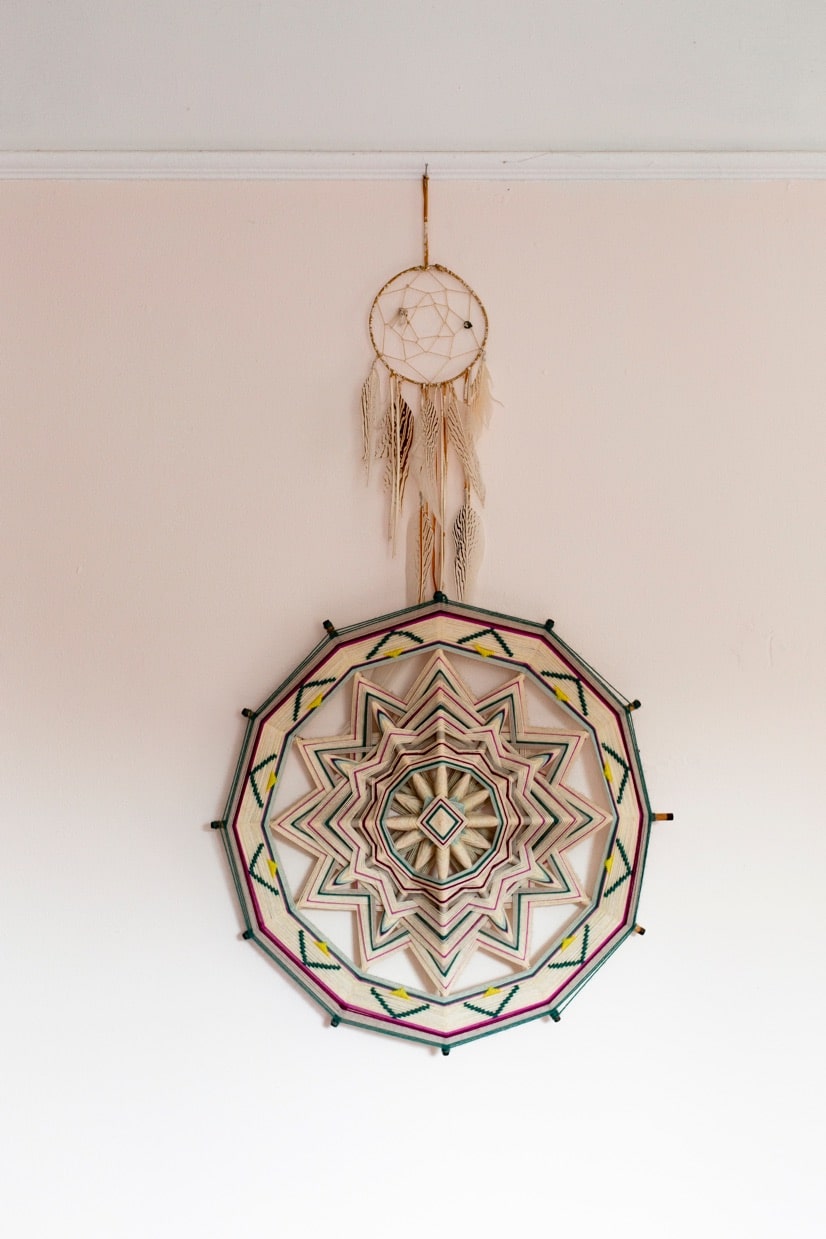
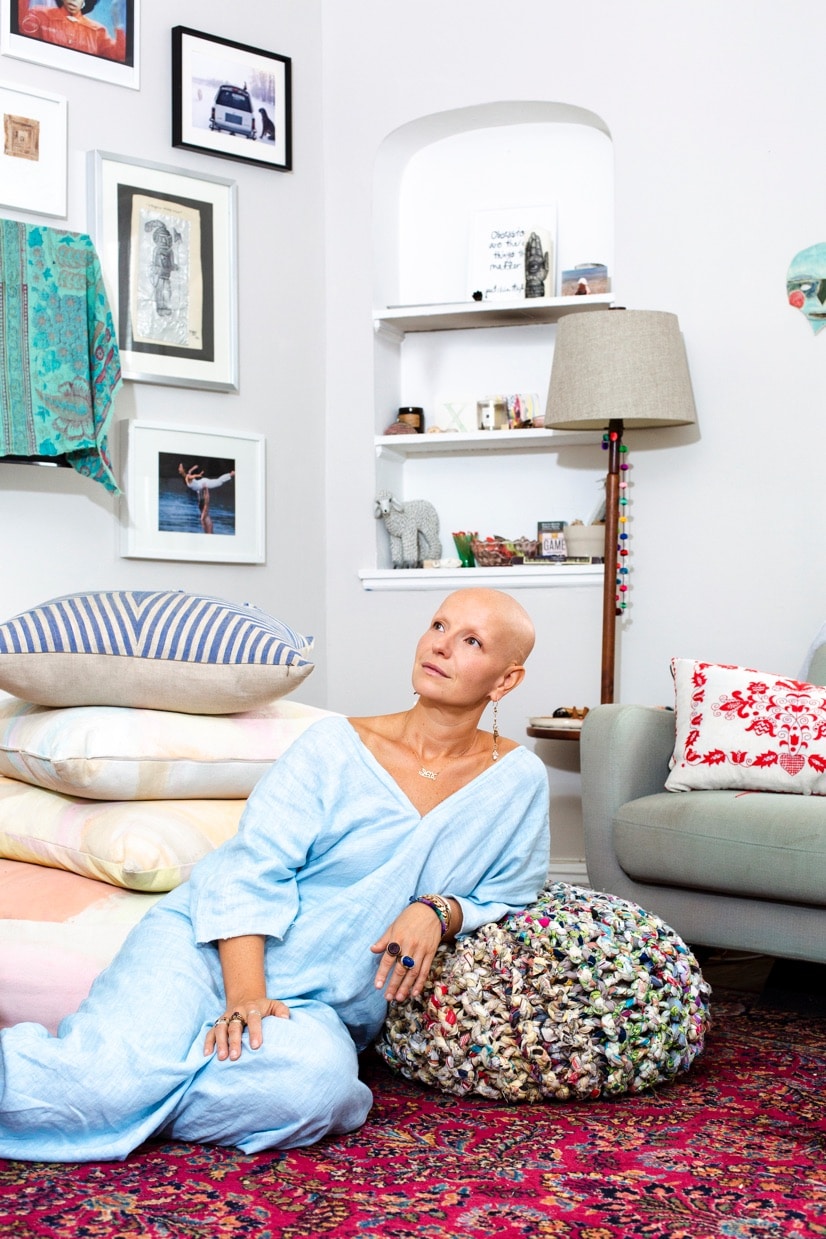
What does being Jewish mean to you today?
I strongly identify as a Jewish person. It’s only gotten deeper and more meaningful as the years have gone on. I have a strong sense of my spiritual life. I have a very constant connection with what I think of as God. I have a committee of spirits that I consult. I don’t think of my Judaism as my religion, I think of it as my cultural heritage. I feel strongly about keeping it alive in my life.
For me, God is everywhere and God is everything.
God is in the Jewish stuff, too, but my connection to Judaism has to do with the tradition.
I learned how to make the family brisket and potato kugel and noodle kugel over the past couple of years. I used to think, “Ugh, this Ashkenazi food is so gross.” Then I realized, “No, you have to learn how to make it.” It is meaningful to have the noodle kugel that my grandmother made. By the way, it is so good.
Even though I’m not finding God in shul, I feel connected to a power that’s greater than myself when I go to Lab/Shul in New York. I think there’s a very high vibration that Amichai brings to the table. I’m really into it and I feel connected there, but mostly I feel like having Shabbat, and I try to do that as much as possible with friends, Jewish and non-Jewish. I feel connected when I’m hearing the prayers in synagogue when I do go, like the Shema and the Barechu and the Mourner’s Kaddish.
I’m making my first feature film and there’s a pretty heavy Jewish theme in it.
The story is of three generations of women versus the beauty myth over the course of one summer on Long Island in which each of them has experienced a significant loss. They happen to be Jewish.
Roxie is 16, and she’s lost all of her hair. Her mother, Deborah, has lost her mind via her husband leaving her in the midst of a mid-life crisis. Grandma’s husband has just died. The real Jewish moments of the film happen very early on, in that Grandpa is buried and it’s a Jewish funeral, and the Mourner’s Kaddish is said. The Jewish ritual of a funeral, from the digging of the dirt on the pile with the back of the shovel and the rocks hitting the wooden casket.
The shivas and the funerals of my childhood really defined my Judaism.
In 1988, five of our family members died. I felt like I was constantly at a funeral and constantly at a shiva. The shiva that’s in the scene, it’s just old Jews sitting in folding chairs eating bagels with cream cheese on their mouth and crumbs on their blazers and mothers asking daughters why are they eating so many cookies.
After I wrote it, I thought, “Oh, you made a Jewish movie.” That’s what I am.
You also made a film about gefilte fish. What did you learn from that experience?
My dear friend Francine said, “We should make a film about my mom’s gefilte fish tradition.” I thought, “What’s so special about it?” She makes a Passover seder for 200 people. They make 200 plates of gefilte fish by hand every year, no matter what, months in advance. I said, “Holy shit, we definitely need to capture that.”
I’m a yes person.
I say, “Let’s do it,” and I do it. I’m obsessed with sense memory. I was in psychoanalysis for a long time. It’s very hard for me not to think of the deeper meaning. Also, as a filmmaker you’re constantly asking, “What does that mean?” I said to Francine, “It’s not about the fish.”
It’s about memory. It’s about connecting with the past. It’s about connecting with our lost loved ones and honoring this deep, rich heritage. Food is such a memory bridge. I love food. My parents are scientists, so I set out with my hypothesis that it’s not about the fish. In the end, I was proven correct.
What I feel so excited about, which I didn’t realize we were doing at the time, is that we created a timeless film which we can watch every year at Passover. I want to go to all the Jewish film festivals with this film.
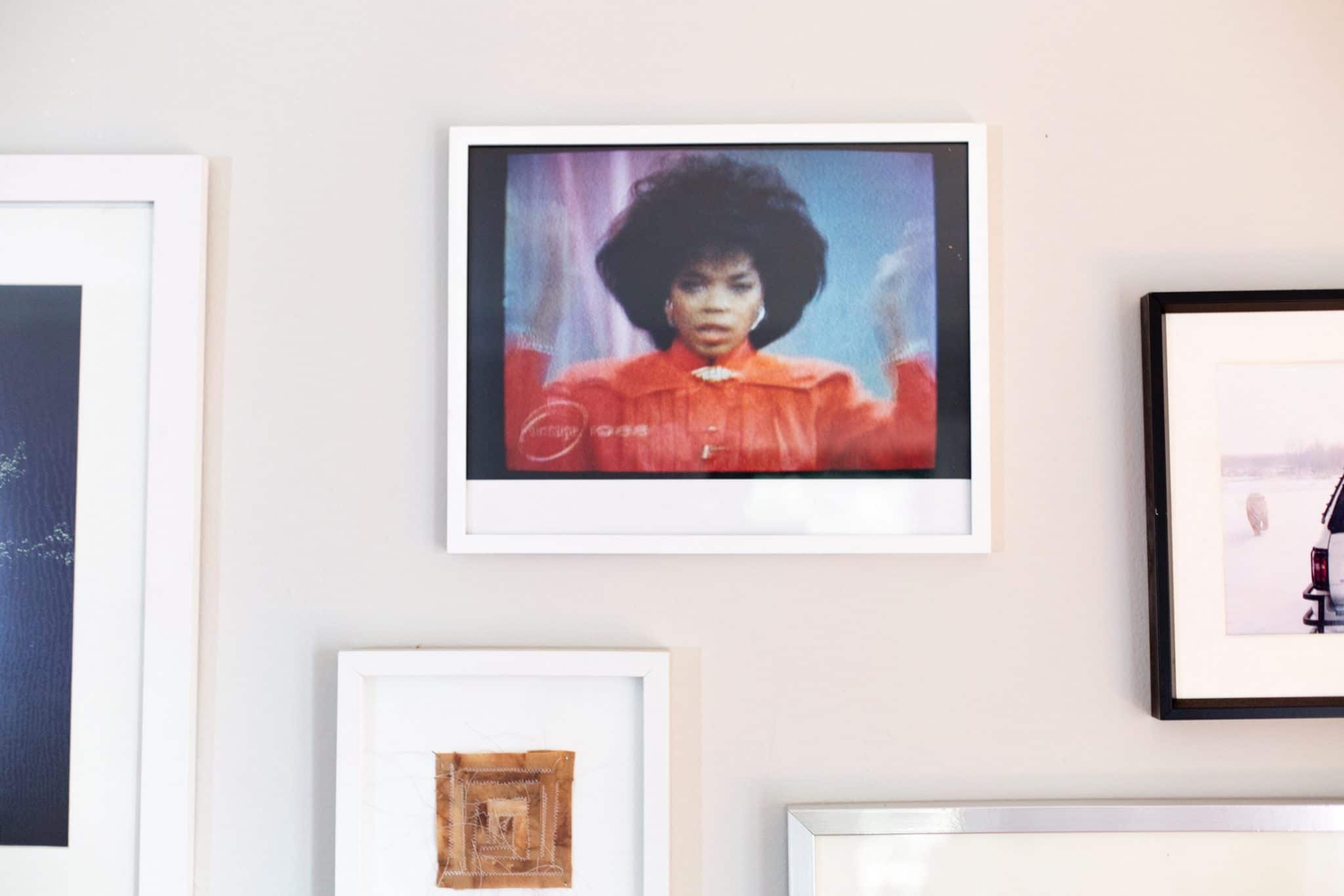
What is next for you?
The thing that is the most important is that I create this feature film. Right now, it’s in a pretty good draft state. It’s my baby. I have a feeling in my heart that it’s the thing I have to push out of me before I can do anything else. I have no idea what the future holds, but I know that is the thing that I want. If it’s meant to be, it’s going to be.
I just want to live as an artist in the world.
I do random side-hustle stuff to make money so that I can live as an artist. I have a weirdly specialized skill in editing people’s closets and personal styling of their wardrobe and their home. I produce events: I am doing a Shabbat dinner series, and I have a dinner series at my house every other month for female-identifying filmmakers. I’m running a marathon, which feels like a part-time job, but I don’t get paid for it.
I’m a busy person in the world, but the directing is my focus.
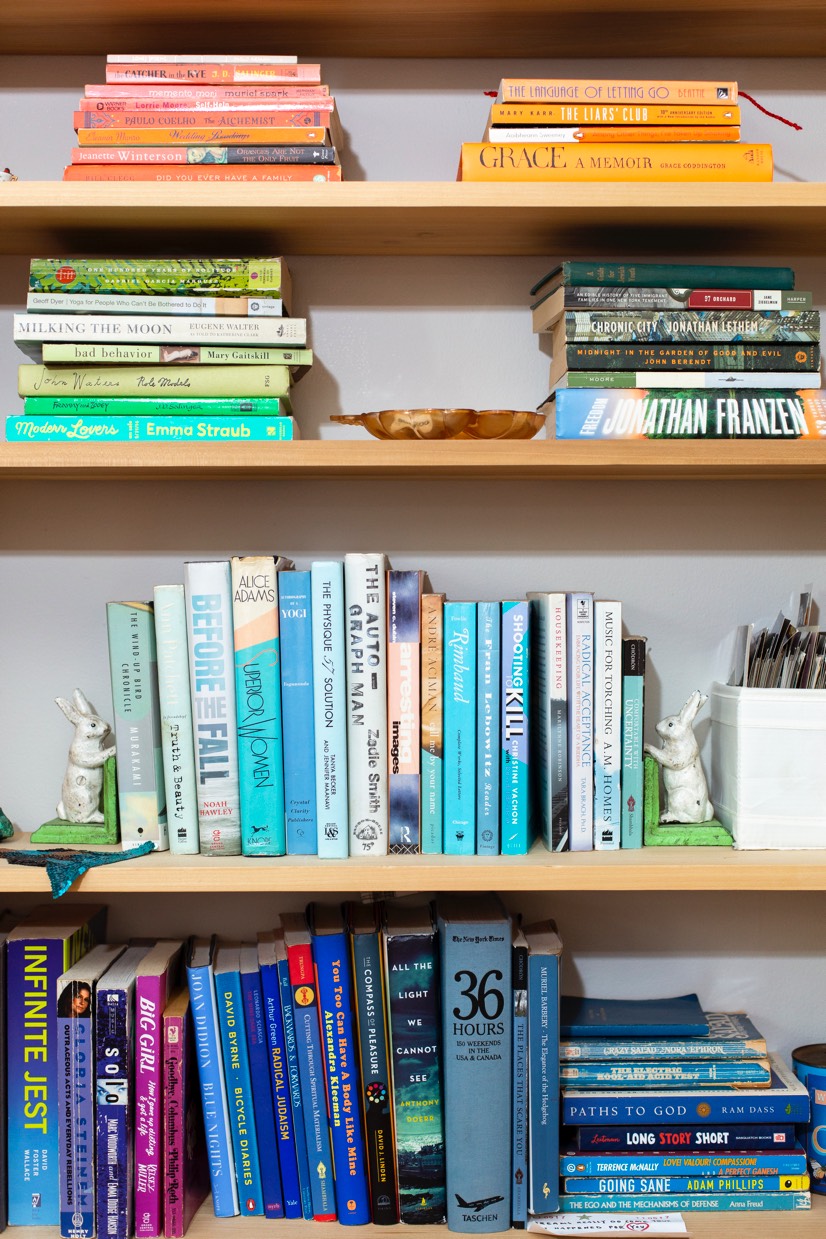
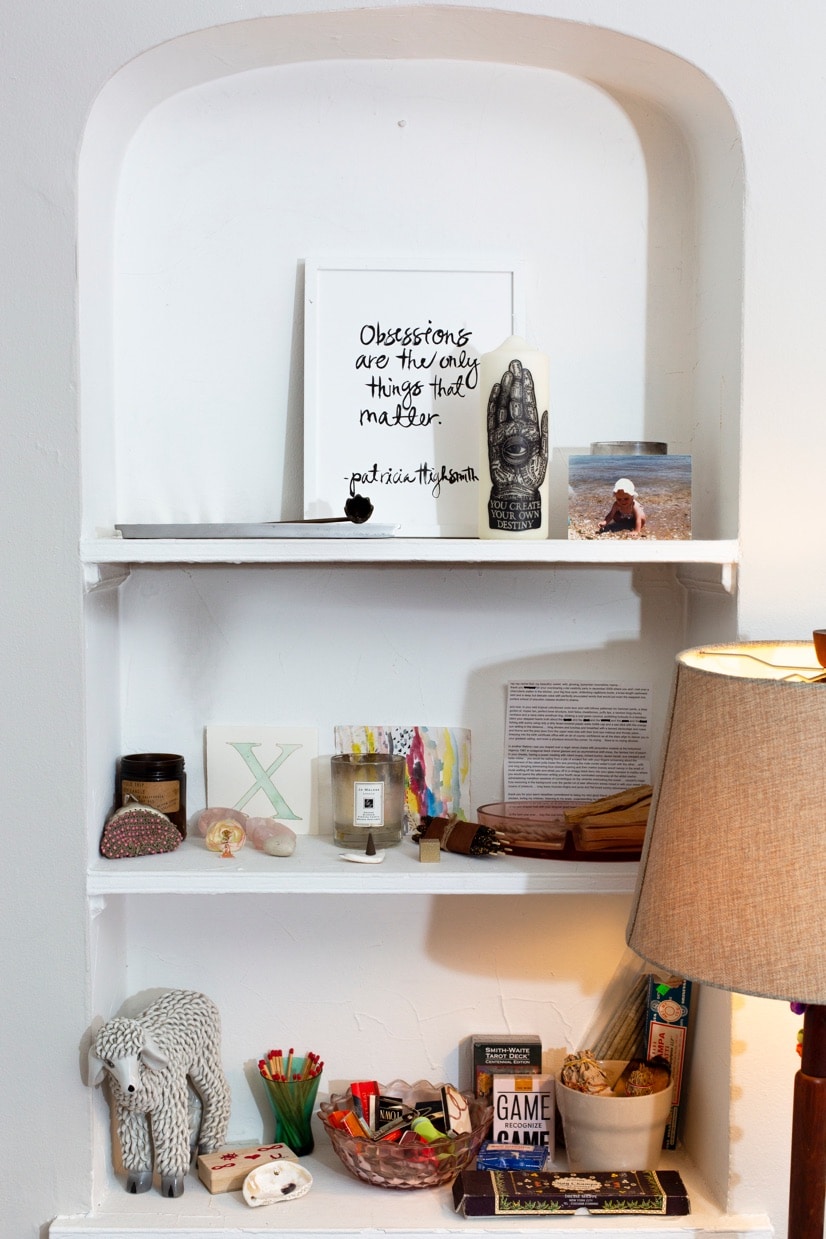
Do you have a personal mantra or words that you live by?
Patience attains all it strives for.
It means just wait. You don’t know what’s in store. Be patient.
What is something you have not figured out yet?
How to let the love in, romantically. I feel extremely close, but I haven’t quite figured out how to completely let go and be vulnerable.
I feel very loved.
I feel very celebrated by my communities, but that special one-on-one romance thing…I surrender. It will be done for me. It will become clear when it’s time.
What is something you have figured out?
I have a unique ability to make people feel loved and adored and seen and heard.
There’s a slogan, “Esteemable acts build self-esteem,” and the more that I connect to this idea that I am gifted in seeing people and loving them for who they are, it’s helping me realize that I can be seen and loved for who I am.
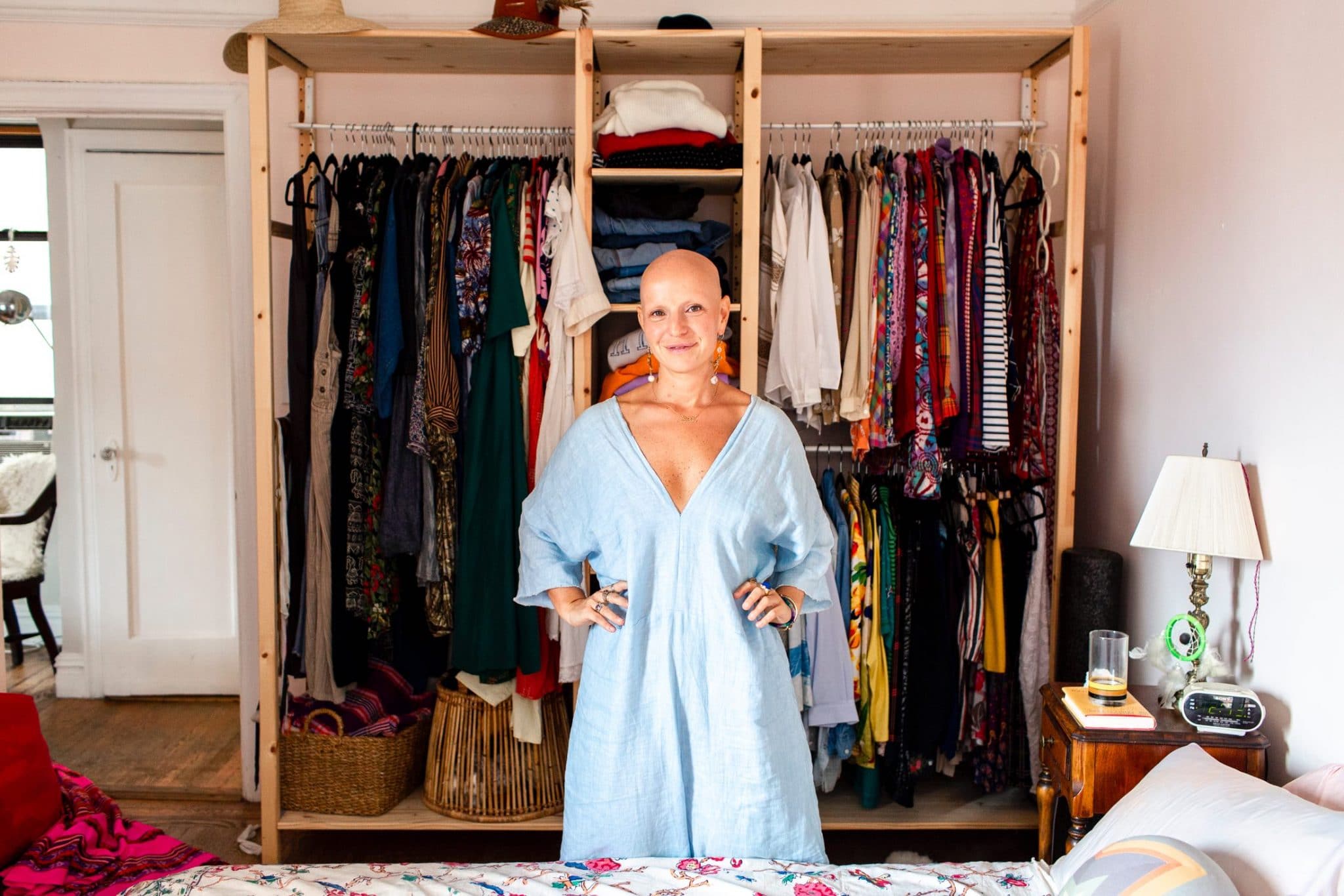
What is your most treasured possession?
This amethyst ring that my grandfather gave my grandmother for her birthday. I wear it every day. The blue lapis ring from my fraternal grandmother. This t-shirt from high school, from the soccer team. I was on the Junior Varsity team in high school, and that was a super accomplishment for me. I’ve held on to the t-shirt. It’s been lost at boyfriend’s parents’ houses and returned to me years later. I’ve had to let it go and it’s come back to me.
I have a collection of sunglasses. I have broken and lost so many pairs of sunglasses that I think of my collection as men. Boyfriends. When something doesn’t work out, there’s always another pair, there’s always another boyfriend.
I have a pink piece of fabric that I’ve worn as a turban since I stopped wearing a wig at 18 years old. It’s pretty meaningful to me.
What do you most value in your friends?
They really show up for me and each other. We are a crew of men and women. We have each other’s backs. We know what’s going on in each other’s lives on a daily basis.
When shit hits the fan, there is an abundance of people surrounding me.
I’m very, very lucky.
What’s your favorite place on earth?
It’s Atlantic Avenue Beach in Amagansett. Wait, no I have to change. That’s my second runner up.
The first runner up is this secret ocean beach in Montauk that you can only access magically through an enchanted trail. It’s huge bluffs and crazy dunes and a bathtub of an ocean that, even in the high season, in August, no one is ever there, because you have to schlep to get there. It’s so beautiful. I wrote a scene in my film for it.
Photos by Elena Mudd
Thank you for visiting Arq!
Arq is no longer publishing new content. We hope you'll enjoy our archived posts.